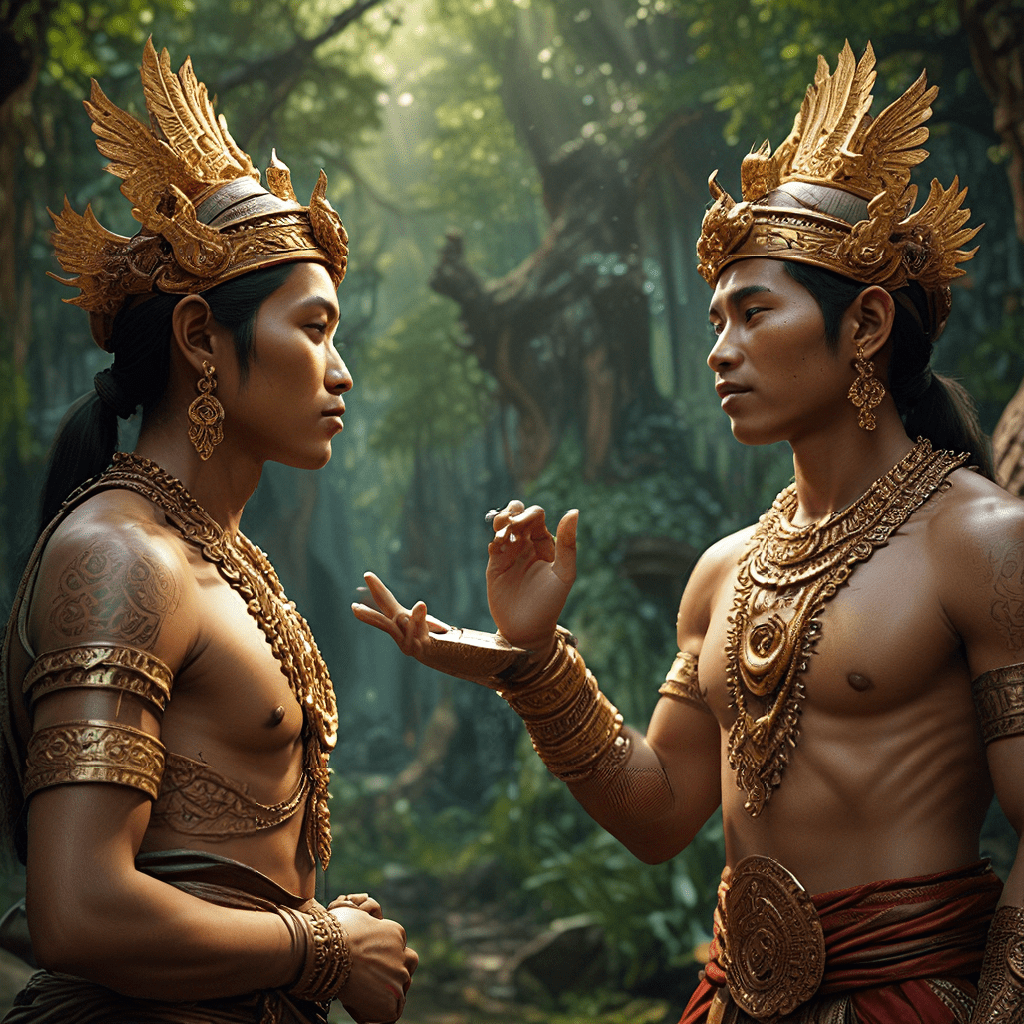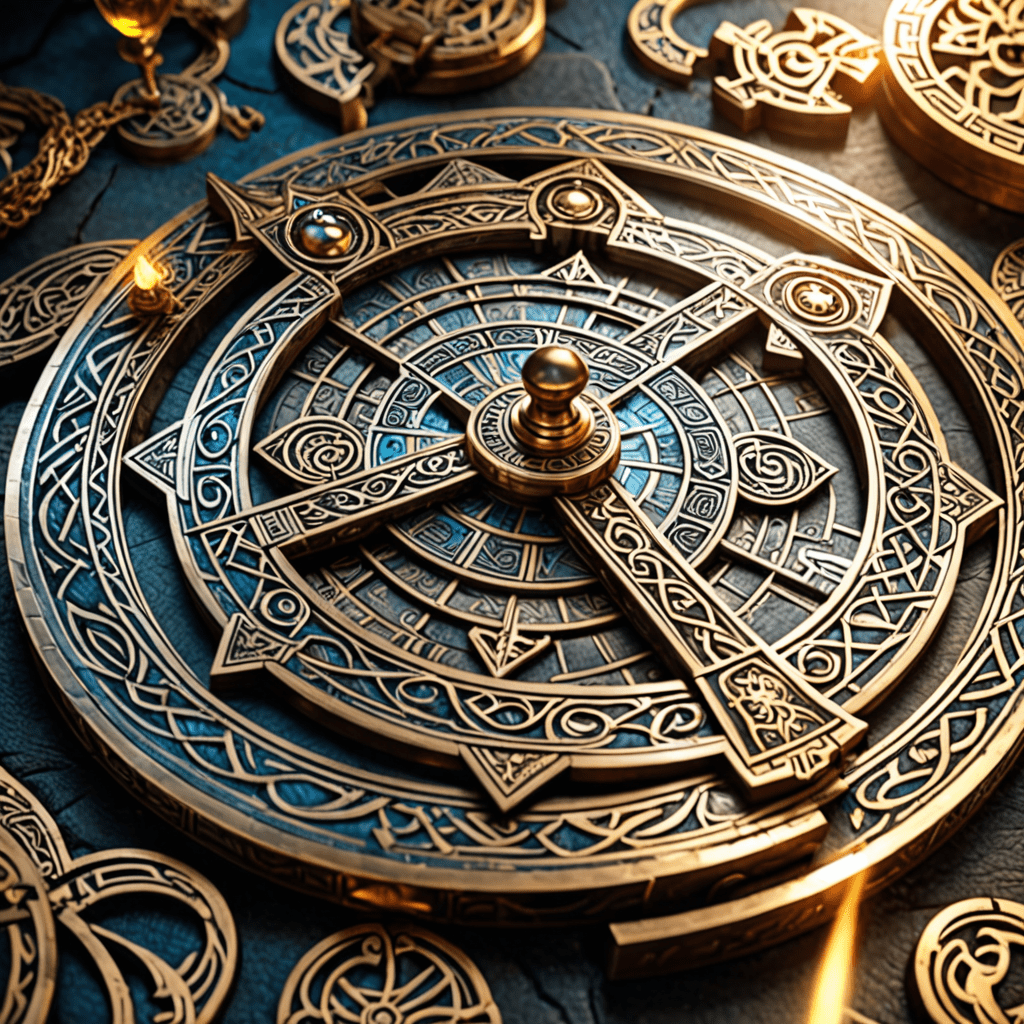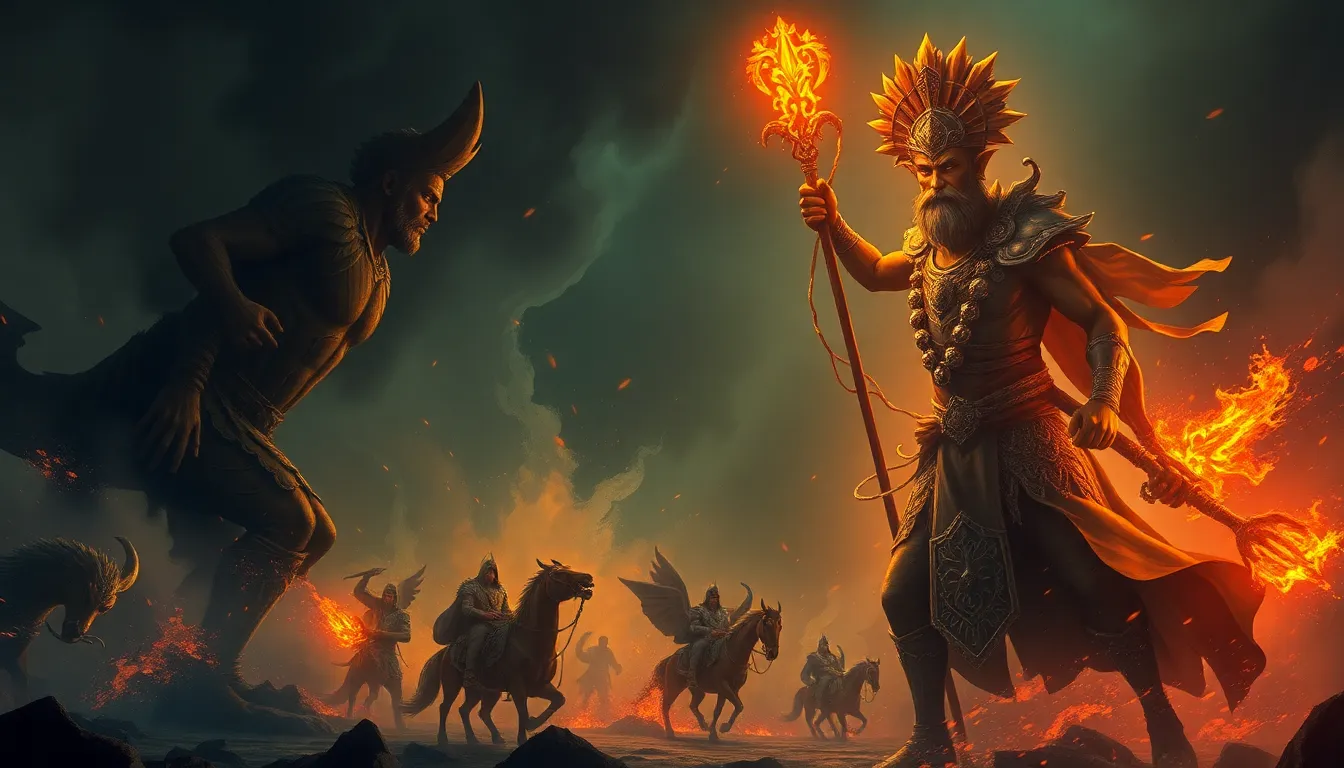Indonesian Mythology: A Rich Tapestry of Belief
Indonesia, a vast archipelago with over 17,000 islands, boasts a rich tapestry of ancient beliefs and stories. These tales, passed down through generations, weave together mythology, folklore, and ancient wisdom. Indonesian mythology is a fascinating world populated by gods, spirits, heroes, and mythical creatures. These stories offer unique insights into Indonesian culture, values, and the human condition. Each tale carries within it a moral lesson, a reflection of the complexities of life, and a deep connection to the natural world.
The Power of Friendship in Indonesian Folklore
Friendship holds a significant place in Indonesian folklore. Stories often emphasize the importance of loyalty, trust, and mutual support. These narratives illustrate that true friendship can withstand the test of time and overcome even the most challenging circumstances. Friendship is not just a social bond but a vital element for survival and prosperity in many Indonesian myths.
Betrayal: A Recurring Motif in Indonesian Myths
Betrayal is another recurring theme within Indonesian mythology, often presented as a potent force that disrupts harmony and brings about devastating consequences. These stories explore the dark side of human nature, revealing the destructive power of greed, jealousy, and revenge. Betrayal in these myths often stems from broken trust, shattered promises, and the pursuit of personal gain, ultimately leading to suffering and chaos.
The Gods and Goddesses of Friendship and Betrayal
Indonesian mythology is populated by a diverse pantheon of gods and goddesses, each with their own domain and responsibilities. Some deities embody the ideal of friendship, while others are associated with betrayal, deceit, and the consequences of broken trust. The stories of these divine figures offer valuable insights into the moral complexities of human interaction and the forces that shape our destinies.
The Story of “Sangkuriang”: A Tale of Betrayal and Its Consequences
"Sangkuriang" is a well-known Indonesian myth that vividly portrays the devastating consequences of betrayal. It tells the story of a young man who, unaware of his true parentage, accidentally kills his own father and is cursed by the gods for his actions. This myth explores themes of betrayal, revenge, and the power of fate in shaping individual destinies. It serves as a cautionary tale about the importance of truth, respect for elders, and the potential for personal actions to have far-reaching consequences.
The Role of Nature in Exploring Friendship and Betrayal
In Indonesian mythology, nature plays a powerful role in shaping the narratives of friendship and betrayal. The natural world serves as a backdrop, a source of symbolism, and a reflection of human actions. For example, in the myth of "Sangkuriang," the volcanic mountain Tangkuban Perahu is a potent symbol of the consequences of betrayal. The mountain, believed to be a boat transformed into stone, represents the shattered dreams and broken trust associated with the story. Similarly, the presence of rivers, forests, and mythical creatures like the "Naga" (dragon) contribute to the atmosphere and meaning of these narratives. These natural elements often act as witnesses to the unfolding events, highlighting the interconnectedness of humans and the natural world. The use of natural imagery helps to ground the stories in the physical environment, adding depth and resonance to the themes of friendship and betrayal.
The Impact of Social Hierarchy on Friendship and Betrayal
Social hierarchy and power dynamics play a crucial role in shaping the narratives of friendship and betrayal in Indonesian mythology. Many stories are set against a backdrop of complex social structures and intricate relationships between different classes. The myth of "Roro Jonggrang," for instance, explores the tension between a powerful king and a cunning princess. This story suggests that social hierarchies can influence the motivations for betrayal, leading to devastating consequences. It also highlights the importance of humility, respect, and the potential for abuse of power to disrupt harmony and create conflict. By exploring these social dynamics, Indonesian mythology provides insights into the complexities of human relationships and the impact of power structures on individual choices and actions.
Theories of Betrayal in Indonesian Mythology
Betrayal in Indonesian mythology can be interpreted through various theoretical lenses. One perspective draws attention to the concept of "karma" and the cyclical nature of cause and effect. This perspective suggests that betrayal often leads to a chain reaction of negative events, ultimately bringing about suffering and misfortune for those involved. Another perspective is influenced by the concept of "duality," which explores the inherent tension between good and evil, love and hate, and trust and betrayal. This perspective suggests that betrayal is an unavoidable part of the human experience, often stemming from a clash of perspectives, competing desires, or the pursuit of selfish ambitions. By analyzing these theories, we gain a deeper understanding of the moral and philosophical implications of betrayal in Indonesian mythology.
Psychological Perspectives on Betrayal in Indonesian Folklore
From a psychological perspective, Indonesian folklore offers compelling insights into the motivations behind betrayal. Often, betrayal stems from feelings of jealousy, envy, or insecurity, as seen in the myth of "Sangkuriang," where the character's jealousy of his father's love for another woman leads to devastating consequences. The stories also highlight the human need for belonging and acceptance. Betrayal can be a response to feelings of isolation, exclusion, or a perceived threat to one's social status, as in the case of "Roro Jonggrang." By understanding the psychological drivers of betrayal, these myths help us to better comprehend the complexities of human behavior and the emotional consequences of broken trust.
Indonesian Mythology: A Mirror to Human Nature
Indonesian mythology offers a rich and diverse collection of stories that reflect the universal human experiences of friendship and betrayal. These tales explore the complexities of relationships, the consequences of broken trust, and the ongoing struggle between good and evil. The myths serve as reminders of the value of loyalty, the importance of forgiveness, and the enduring power of human connection. By exploring these themes, Indonesian mythology provides a powerful mirror to our own lives, helping us to better understand ourselves, our motivations, and the choices we make in our relationships. These stories offer invaluable lessons about the fragility of trust, the consequences of greed, and the importance of remaining true to our values, even in the face of adversity.
FAQ
What are the main themes in Indonesian mythology?
Indonesian mythology explores themes of friendship, betrayal, nature, social hierarchy, and the human condition.
What are some popular myths in Indonesian mythology?
Some popular myths include "Sangkuriang," "Roro Jonggrang," and "Naga" stories.
What is the significance of nature in Indonesian mythology?
Nature serves as a powerful backdrop, a source of symbolism, and a reflection of human actions, often acting as witnesses to the unfolding events.
How does social hierarchy influence the myths?
Social hierarchy and power dynamics play a crucial role in shaping the narratives, highlighting the potential for abuse of power and the impact of social structures on individual choices.
What are some theoretical perspectives on betrayal in Indonesian mythology?
Betrayal can be interpreted through concepts of karma, duality, and psychological perspectives, exploring the motivations and consequences of broken trust.



